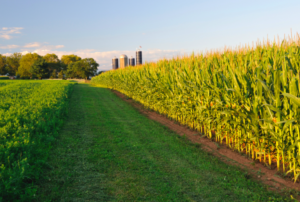 Agricultural work can be hazardous to your health. Research shows that approximately 100 workers each day succumb to an injury that causes them to miss work. These injuries come from a multitude of risks they face every day including, environmental risks, hazardous pulmonary conditions, animal acquired infections, grain bin/silo accidents, heat-related injuries, a lack of sanitary conditions—and that is just to name a few of a long list. So why do only thirteen states (Georgia not being one of them) require employers to provide workers’ compensation benefits? many hazards
Agricultural work can be hazardous to your health. Research shows that approximately 100 workers each day succumb to an injury that causes them to miss work. These injuries come from a multitude of risks they face every day including, environmental risks, hazardous pulmonary conditions, animal acquired infections, grain bin/silo accidents, heat-related injuries, a lack of sanitary conditions—and that is just to name a few of a long list. So why do only thirteen states (Georgia not being one of them) require employers to provide workers’ compensation benefits? many hazards
All “Employees” Covered
In Georgia, there are specificcategories of workers who are not always covered by workers’ compensation benefits. Farm laborers are one of them. However, by and large— even those employers who are not required to provide benefits generally do so on a voluntary basis.
For those businesses required to carry workers’ comp benefits, (employers with 3 or more workers) the law is clear that any employee is eligible. It doesn’t matter if you are part time, or full time, seasonal or temporary— all employees can make a claim for benefits if they are injured on the job. The exception to that rule is if the employee is a sub-contractor or agency employee. In that case, the overseeing agency would likely be the party required to provide benefits. Migrant workers are covered as well, even if they misrepresented their immigration status to the employer upon being hired.
Hazards of Agricultural Workers
Agricultural work can be treacherous and workers are exposed to innumerable health and safety hazards. The following are some of the more common threats they face daily:
Health and Safety Hazards
Respiratory:
- Exposure to dusty mold or grain
- Exposure to deadly or disabling gases
- Pesticides
- Toxic spill
- Develop asthma, chronic bronchitis, and have a chronic cough
Vehicle:
- One of the most common types of injuries and fatalities seen in this industry.
Falls:
- A worker may fall from a grain bin or silo.
- They might fall from a piece of farm equipment.
- Might be practicing improper ladder safety. This can often result in death.
Repetitive Motion:
- Farm workers experience repetitive motion and have to push, pull, and lift in intensifying conditions like extreme heat, extreme cold, and continuous vibration.
- Poor ergonomics contributes to the injury as the worker has to be hunched over or in an awkward position.
Heat Related Conditions:
- Heat stress occurs when your body builds up so much heat, it can no longer tolerate it.
- Caused by extremely hot temperatures, high humidity, too much sunlight, and difficult workloads.
Equipment Injury:
- Tractor-related accidents are common and almost always result in the loss of legs or arms— and many other serious injuries.
In a 2018 publication, the CDC reported that two years earlier there were 417 farm workers involved in fatal, work-related injuries. The leading cause of death was tractor overturn.. Equipment injuries can be so traumatic that if the workers does not lose his or her life, they often end up with something severe such as Traumatic Brain Injury (TBI) or paralysis from a spinal cord injury.
Safety Training
Farmers are expected to know their responsibilities, but also have the right to feel safe at their workplace. There are many websites where you can can find information on agricultural safety and regulations, including pesticides, farm vehicles, seasonal workers, and more. As part of the National Occupational Research Agenda (NORA process), a national occupational safety and health agenda for the agricultural industry was developed. It is an extensive safety program focused on addressing the risks of injuries and illnesses experienced by workers in agriculture. There are strict safety guidelines in place to prevent accidents on farms that cover everything from how to avoid losing your hearing to manure pit safety. Farm employers are also supposed to create a safety plan and make sure employees have.
Agriculture continues to rank one of the most dangerous industries. If you have questions about your eligibility you should contact a workers comp attorney. Your attorney will understand the ins and outs of the law and help guide you through the difficult process. It is vital that you understand your rights under the law and have an advocate making sure you collect everything you are entitled to.
